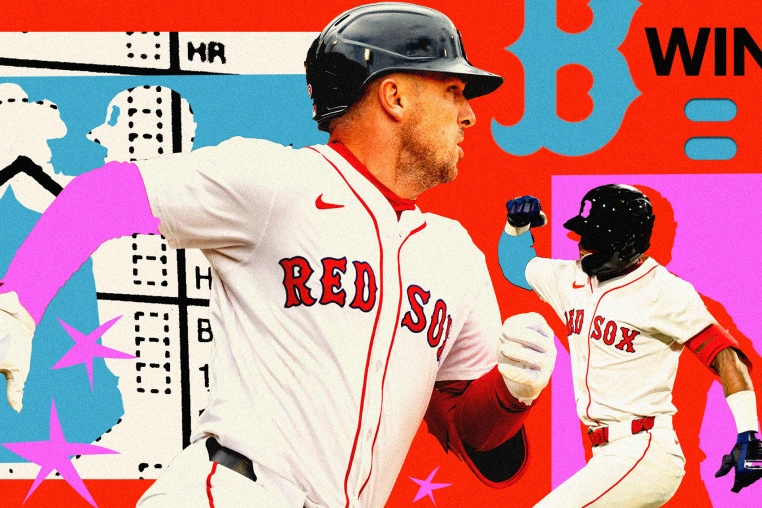Red Sox Surge After Trading Devers, But Fans Remain Skeptical
By Roy J. Miles

The Boston Red Sox stunned the baseball world on June 15, 2025 by trading star third baseman and designated hitter Rafael Devers to the San Francisco Giants—a blockbuster move that sent shockwaves through the fan base. Devers had signed a 10‑year, $313.5 million contract just two seasons earlier and was a three‑time All‑Star. The trade returned San Francisco a package of pitching prospects including Kyle Harrison, Jordan Hicks, James Tibbs III and Jose Bello. While Boston front office executives defended the trade as necessary to restore clubhouse chemistry and prepare for longer term rebuilding, fans and pundits slammed the move as reckless, unceremonious, and a betrayal of trust owed to Devers and civic pride. Critics pointed to ownership’s pattern of trading franchise icons—from Mookie Betts to Xander Bogaerts—as evidence of financial priorities trumping competitive ambition. Many supporters pointed to parallels with past ill‑advised moves and accused the front office of lacking a coherent plan. A season ticket holder on Reddit captured the mood: “I am still in a state of shock… they simply are upset because their franchise player … didn’t want to move positions… They don’t give a s*** about the fans.” In the ensuing weeks, however, the tide appeared to turn. The Red Sox ripped off a 10‑game winning streak at the All‑Star break after going 16‑9 post‑trade, moving from 37‑36 in the standings to a strong wild‑card position within three games of the division lead. Analysts flagged breakout contributions from younger players like Roman Anthony, who hit over .300, and Ceddanne Rafaela, who delivered eight home runs—powering a revitalized lineup. Manager Alex Cora and chief baseball officer Craig Breslow argued that removing Devers corrected clubhouse discord and allowed the team to play with renewed cohesion. Breslow stated the move did not signal conceding the season, but was meant to “course correct” and align the roster around internal culture and chemistry. Cora echoed the sentiment, emphasizing steady focus: “We’ve got to keep going… we put ourselves in a good spot… now we have to do it without Raffy.” Players also embraced the challenge, with veterans and prospects stepping up in the new lineup. Garrett Crochet delivered dominant outings, and Roman Anthony smashed a home run in his first game in the post‑Devers lineup, reinforcing the narrative of deepening internal belief. “Winning solves everything… if we win baseball games, we put ourselves in a good position,” Crochet said. Behind the scenes, sources and media reports pointed to growing friction between Devers and management over position changes. After signing Alex Bregman as a free agent, Boston asked Devers to move to designated hitter and eventually to first base when injury struck Triston Casas. Devers initially agreed to DH, but resisted the move to first base, reportedly pressing for a trade. That friction reportedly sealed the fate of the franchise cornerstone. Critics and fans were skeptical that the team’s weekend sweep of the Yankees prior to the trade indicated rising momentum, not roster dysfunction. Many felt the ownership—led by Fenway Sports Group principals like John Henry—had once again prioritized financial considerations and attention allocation (notably money coming into Liverpool FC) over Red Sox competitiveness. Fans slammed the trade as “the worst in modern baseball history” and called it an unfixable blow. Despite the current winning streak vindicating club insiders and analysts, many fans remain unconvinced. Some continue to protest via social media, including doxxing incidents aimed at club executives like Craig Breslow. One user on Reddit lamented that nothing genuine would repair the damage unless ownership addressed its credibility gap. Even as the on‑field product improved, a portion of the fan base continued to feel betrayed. Longtime supporters questioned whether short‑term success justified sacrificing a marquee player. Comparisons to past missteps—like trading Betts and letting Bogaerts walk—have fueled lingering distrust that chemistry and competitiveness would reliably follow. Meanwhile, analysts caution that current success may reflect schedule softness rather than sustainable strength. Boston’s recent wins came in part against lower-tier opponents, raising questions whether the young core can carry the team into October if competition stiffens. Still, benches such as Anthony and Rafaela show potential beyond a one-month surge. The front office now faces a pivotal upcoming trade deadline where additions could solidify their playoff push—or deepen fan skepticism if moves fall flat. The trade now stands at a crossroads: critics see it as the latest in a pattern of destabilizing decisions, while others argue it may prove to be visionary if youth and depth deliver long-term gains. For now, the Red Sox are riding the hottest stretch of the season—but fans are divided, praising the wins but still mourning one of their oldest stars. Whether redemption or regret, the Devers trade has become a moment that will define the identity of this Red Sox era.